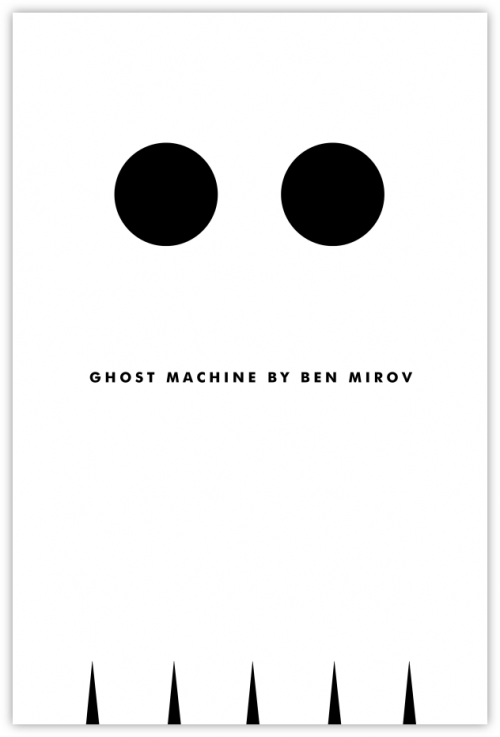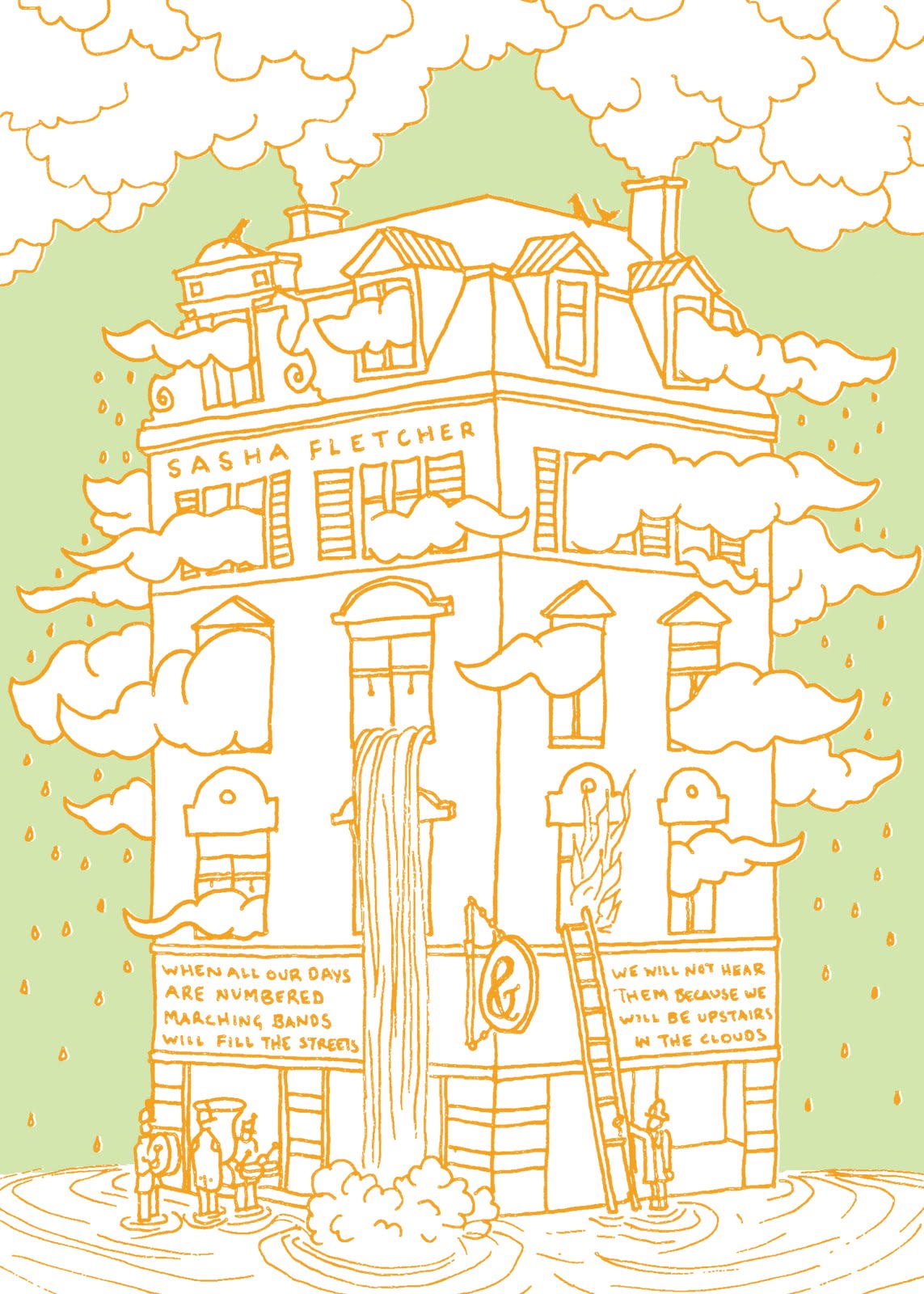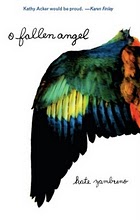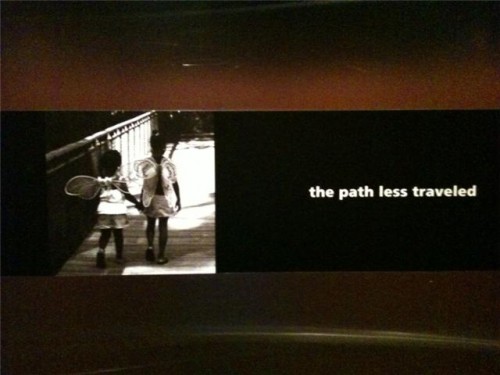Ben Mirov’s Ghost Machine
This book is freaky, incredible, and one of my favorite sublime objects in a long while.

You can buy it from Caketrain for $8.
Examples which might explain James Joyce’s love-hate relationship with Dublin

Finnegans Wake is super tiring, and for some, so is James Joyce. But come on people, North Earl Street doesn’t look so bad. History is made to be forgotten, and for folks to sit on. For birds, to shit on. Short of a rhyme for immortal rigamortis, just give us reason.
Next Thursday, May 27, Live Giants 5 w/ Sam Lipsyte
Mark your thing or whatever, as we’re superstoked to be hosting Live Giants 5 with the magnificent Sam Lipsyte, who will read from his home (or perhaps some surprise location) on May 27 at 9 PM Eastern, for his latest novel, The Ask. As usual, the live stream will be right here and free for all, with chatroom and q/a opened up to those who hang. See you there!

May 17th, 2010 / 12:35 pm
2 doads riverged and some bluebirds etc
This photo and caption were inside the elevator of my hotel. Affixed to the actual door. This was Dry Ridge, Kentucky. Dry Ridge sucks. Why? Because it’s dry. Why would a state officially blooomed for bourbon want to populate itself with dry counties? It’s like entering a college coffee shop without hearing some kid discussing free speech or Eric B and Rakim. Like logging onto HTML and not finding flames, hijacked theory, gelatinous shreds of Tao Lin…but I do digress.
I’m all for inscrutability but WTF on this ad? “the path less traveled” (no caps–very hip) is two girls in fake wings walking?
The real concern isn’t the advert. (Is it even? What exactly is it selling? Why is it on the elevator door?) The real botheration is the source material. That fucking poem.
Let’s trod on:
Do You Want To Help An Independent Author Get Fancy Drunk?
 Sasha Fletcher reports via GMail chat on how we can turn indie lit commerce into alcoholic camaraderie:
Sasha Fletcher reports via GMail chat on how we can turn indie lit commerce into alcoholic camaraderie:
so there’s like 20 copies left
and if we sell out today, ja will paypal me money to get drunk on fancy beers
THE VISIBLE THE UNTRUE (to E.O.) – an unfinished poem by HART CRANE
the terrible puppet of my dreams, shall
lavish this on you–
the dense mine of the orchid, split in two.
And the fingernails that cinch such
environs?
And what about the staunch neighbor tabulations
with all their zest and doom?
.
I’m wearing badges
that cancel all your kindness. Forthright
I watch the silver Zeppelin
destroy the sky. To
stir your confidence?
To rouse what sanctions–? toothaches?
.
The silver strophe . . . the canto
bright with myth . . . Such
distances leap landward without
evil smile. And, as for me . . .
.
The window weight throbs in its blind
partition. To extinguish what I have of faith.
Yes, light. And it is always
always, always the eternal rainbow
And it is always the day, the farewell day unkind.
+
from The Complete Poems of Hart Crane, centennial edition, ed. Marc Simon, introduced by Harold Bloom. New Yorkers, you can have one for seven dollars at The Strand.
Wi-fithering Heights

What the hell, is that a laptop by Emily Bronte (d. 1848)? I assumed it was photo-shopped, but upon searching online, every version I found (from reliable non-satirical websites) shows the same laptop. It also looks like she’s fingering (probably should’ve used another word) her phone.
Murderous Fucking Murderous: An Interview with Kate Zambreno
Kate Zambreno go es for the throat. Or at least her language does, in the manner of those who came to wreck not by demanding, but by will. Her debut novel, O Fallen Angel, (which won the Chiasmus Press ‘Undoing the Novel’ contest) arrives in the grand spirit of Acker, Artaud, Burroughs, but where these are A and A and B, Kate is Z in full: her own, slick, squealy, and of another light. As well: Fun, funny, fucked, freaklit, surprising, terrifying, gorgeous. Her words are a meat we surely want more of, quickly.
es for the throat. Or at least her language does, in the manner of those who came to wreck not by demanding, but by will. Her debut novel, O Fallen Angel, (which won the Chiasmus Press ‘Undoing the Novel’ contest) arrives in the grand spirit of Acker, Artaud, Burroughs, but where these are A and A and B, Kate is Z in full: her own, slick, squealy, and of another light. As well: Fun, funny, fucked, freaklit, surprising, terrifying, gorgeous. Her words are a meat we surely want more of, quickly.
On the event of her book’s release (which you can pick up now through SPD) (and read an excerpt of at The Collagist) (and see read live in Chicago this Saturday at Quimby’s), Kate and I spent some time discussing via email her new book, her influences, art, language, terror, cliches, Playboy, Bacon, body fluids, and all things therein.
* * *
BB: The copy of the back of O Fallen Angel says it was inspired by Francis Bacon’s Three Studies for Figures at the Base of a Crucifixion. The images in that painting are quite striking, esp. in that I didn’t look it up until after the text. The orange and white contrast, with the odd body shapes on pedestals as if vivisected and mutated bits of humans stuck on gross smooth forms really resonated in retrospect with the three rotating voices of your text, and made me realize a lot about it in seeing, applying the imagery to the residual effect of your words. I wonder if you could talk about how that image struck you as a way of opening the door here, what effect it had in a process sense, and perhaps how it continued to inform the structure or tone of the book.
Kate Zambreno: I’ve been really haunted by that triptych. For a while I lived in London, really when I first started writing I worked in fiction at Foyle’s bookshop and read all of this experimental fiction for the first time—Ann Quin and Elfriede Jelinek and all the Peter Owen books, Jane Bowles, Anna Kavan—and ran the cult fiction section. I would go to the Tate Museums to the Francis Bacon room in the Tate Britain where they had that first major triptych. I worshipped and gawked at that first triptych, that orange gruesome horror it filled me with such violence and ecstasy. Those three gruesome distorted bodies, the open mouths in Bacon, the silent scream. I’m really interested in the silent scream how we are muted in society, Bacon’s mouths, Helene Weigel’s mouth wide open screaming an empty loss in Mother Courage, Munch’s Scream. I guess that’s some of what I was writing towards in O Fallen Angel, what I’m really always trying to write towards, those who are dumb and deaf but inside writhing with unwordable agony, and are diagnosed as selectively mute, those who lack language so they commit violent acts, they are only given language that is banal and well-behaved , the need to burn burn burn but they cannot so they set fire to themselves, they self-immolate (as one of my characters does literally and the other does symbolically). The spectacle of this, of the wound, to borrow an idea from Mark Seltzer’s cultural study of the serial killer. And we gather around this wound, this trauma in our talk-show society, but then we also suppress it, the anguish, sadness, we medicate it. I also really love how much a reader Bacon was and we both share a passion for the Greeks, the Greek tragedy really inspired O Fallen Angel, especially The Oresteia, the choruses threaded, some of the imagery, and Malachi is a Cassandra figure, ranting, raging, never believed.
Last weekend I read Norwood by Charles Portis on a Peter Pan Bus from NYC to Northampton, Massachusetts. Tremendously funny and sharp, a pre-cursor to the Coen Brothers. And not just hee-haw, but vivid to the point of effortless grace: one man is described as “holding out his tongue like he was waiting for a coin.” Everyone in Norwood is breezy and distinct, even the people “driving the conflict,” which makes it kind of avant-garde, right? For one or two sentence characterization and all-around deft awesomeness, I’ve not read much better recently than Charles Portis. Why is this post a snippet? Because Ed Park already wrote an awesome essay about Portis. Now let’s all read everything Portis has written and gab about it.

